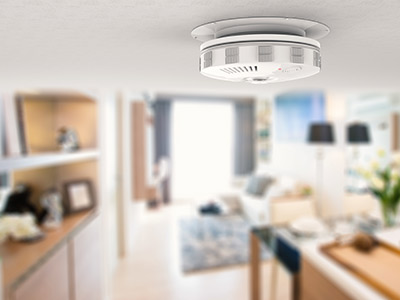ELECTRICIAN DEGREES & CAREERS
Electricians are highly skilled trade professionals, and not just because of the risks associated with their work. Electricians train to handle a wide variety of issues with electrical power, lighting and control systems. They might work in households wiring outlets and light fixtures, or in businesses or factories, overseeing electrical equipment. Some work outdoors, repairing electrical boxes and other peripherals that help keep society humming. Without trained electricians. Perhaps most importantly, however, they keep their communities safe by preventing and responding to dangerous situations.
WHAT DOES AN ELECTRICIAN DO?
Most people know electricians as the professionals who come to their home to inspect or repair wiring, or to install outlets. These tasks, though important, are only one of the many electricians might tackle.
ELECTRICIAN CAREERS BASICS
Electricians install, maintain and repair electric power in rural, residential and commercial areas. They stay up-to-date on safety codes and use only approved materials. They might work in homes, be contracted by large businesses, or work in factories and government installations.
ELECTRICIAN CAREERS IN-DEPTH
Electricians are skilled at reading blueprints and technical diagrams, figuring out the best methods for installing new wiring, replacing old systems, identifying problems through the use of the proper devices, and following all state and local building and safety codes. They often work alone, though sometimes they work in teams, especially when designing and implementing electrical systems for new home or commercial construction.
Electricians are in high demand. The Bureau of Labor Statistics projects jobs opportunities to grow by 14 percent between 2014 and 2024. Those who are well-versed in solar power and other alternative power sources will likely be in higher demand; those who honed their skills in the military can also expect to see better job opportunities. This section explains job growth in various states, helping aspiring electricians make informed decisions about where the jobs are.

HOME SAFETY INSPECTIONS
Electrical safety inspections are crucial to the well-being of your home and the safety of all those who occupy it. Because of this, the Electrical Safety Foundation has compiled a set of guidelines for when you should seek a home inspection.
When to Get a Home Inspection:
Your home is over 40 years.
Your home has undergone a major renovation or integrated a new, large appliance within the past decade.
You are a new homeowner of a previously owned home.
Your lights experience frequent flickering or dimming.
Your circuit breakers flip and/or fuses blow regularly
You have hot-to-touch and/or discolored light switch faceplates
You hear unusual noises coming from electrical outlets
Additional Electrical Safety Inspections:
The inclusion of GFCIs (ground fault circuit interrupters) and surge protection in your home is highly recommended, as it helps protect against accidental electric shock or electrocution. As a precaution, homeowners should consider the installation of GFCIs on general-purpose receptacles throughout the home.
Surge protection offers an additional layer of protection. In fact, if you have sophisticated appliances and electronics, you can’t afford not to safeguard them with whole-house surge protectors. With these installed, you can feel confident your expensive items are properly protected.
Whether you need a thorough home inspection completed or would like whole house surge protection or GFCIs installed in your home

Commercial & Industrial Electrical Solutions
You have someone maintain your floors. You have someone maintain the grounds. Someone will maintain your copiers. You will have someone maintain your central air. It would be beneficial for almost every company to have their electrical maintained, although often people don’t think about it.
Without proper maintenance, things can happen with your electrical power slowly, over time that eventually accumulate into big problems. You may face reduced energy efficiency. Utility bills may increase. The electrical may even be dangerous without anyone knowing about it. One of the worst things that happens is electricity may become unreliable which can cause lost productivity.
Benefits of Electrical Maintenance
Electric bills decrease. It is estimated that businesses in the United State lose $4 billion a year to inefficient electrical systems. Regular maintenance can help reduce inefficiency, which allows the company to put their money to better use.
Damage can be prevented. Whether it is fried computers or lost productivity, a poorly maintained electrical system can cost you money by damaging the electrical tools you rely on to get work done.
Regular maintenance can help equipment run better. Tools, computers, calculators—whatever you plug in—are all intended to operate at a certain level of electricity. If that power doesn’t reach the machine, then the machine has to work harder. It has been estimated that when an electronic device operates on underperforming electricity, its failure rate is three times higher. Regular maintenance can prevent these problems from occurring.
Regular maintenance can prevent larger bills down the line too. Regular maintenance can also prevent the “creep” of electric bills to almost unnoticeable levels each month or year, but which will add up.

Electrical Maintenance Service
A Poorly Maintained Electrical System Can Cost You Money And Place Your Home At Risk!
Like most things, over time your home’s electrical system is subject to wear and tear. However, unlike a lot of other things, a poorly maintained electrical system can leave you and your family at risk! A poorly maintained electrical system could also be costing you money if not running efficiently. To ensure optimum safety and efficiency, you need to have your electrical system inspected and maintained by a professional.
There could be many reasons why your electrical system is failing. If you notice any of the following in your home, your home could be at risk:
Sparks, buzzing, smoke or odours from your light switches or power points
Light switches or power points are faulty in operation
Shocks or surges in your electrical system
Lights are brighter or dimmer than usual
Circuit breakers (fuses) trip frequently
Light bulbs burn out often.
If you are experiencing any of these issues, call our expert team immediately! We can diagnose faults on the spot and quickly repair the problem.
Electrical Installations
Need to install a new electrical appliance but don’t have the know-how or the right tools for the job? are experts at installing electrical appliances from a simple exhaust or ceiling fan to a full circuit breaker (fuse) board replacement. Look no further than for your electrical installation.
Electrical Repairs
An electrical fault in your home can be a serious problem. The team are trusted professional who can deliver a safe and effective diagnosis and repair service from start to finish.
Electrical Safety and Licensing Frequently Asked Questions
Electrical work is defined as:
Any labor or material used in installing, maintaining or extending an electrical wiring system and the appurtenances, apparatus or equipment used in connection with the use of electrical energy in, on, outside, or attached to a building, residence, structure, property, or premises
Service entrance conductors, as defined by the National Electrical Code.
work as an electrician in agricultural operations only, such as farming and ranching. Do I need a statewide electrician’s license?
No, a state electrician’s license is not required for electrical work performed on a building, structure, or equipment used in agriculture. For more on exemptions, see the exemptions page for more information.
An agricultural operation is defined as:
cultivating the soil to produce crops for human food, animal feed, or planting seed for the production of fibers
the practice of floriculture, viticulture, silviculture, and horticulture, including the cultivation of plants in containers or non-soil media, by a nursery grower
raising, feeding, or keeping animals for breeding purposes or for the production of food or fiber, leather, pelts, or other tangible products having a commercial value
raising or keeping equine animals
wildlife management; and
planting cover crops, including cover crops cultivated for transplantation, or leaving land idle for the purpose of participating in any governmental program or normal crop or livestock rotation procedure.
Are employees of public entities required to have an electrician’s license?
Yes. Persons performing subject electrical work must be licensed as electricians